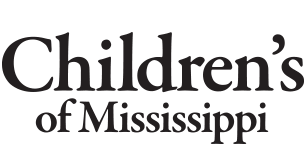I Want To
Contact Us
- For appointments by phone: (601) 984-2700 (Option 1)
- Make an Appointment
Children's Cancer and Blood Disorders
- Children's Cancer and Blood Disorders Home
- Bone Cancer
- Bone Marrow Transplant
- Brain and Central Nervous System (CNS) Cancer
- Germ Cell Tumors
- Hepatoblastoma
- Hodgkin's Lymphoma
- Langerhans Cell Histiocytosis
- Leukemia
- Neuroblastoma
- Non-Hodgkin's Lymphoma (NHL)
- Retinoblastoma
- Soft Tissue Cancer
- Wilms Tumor
- Children's Cancer Support Programs
Children's Neuroblastoma
This rare cancer originates from the nerve tissue of children, usually those 5 years old or younger, and is most common in infants. Neuroblastoma is the most common solid tumor in infants (1 or younger), and represents about 7 percent of all childhood cancers. Doctors diagnose about 650 new cases nationwide each year.
It starts in your child’s sympathetic nervous system, and most often will affect the nerves in their adrenal glands, neck, chest or spinal cord. Your child’s sympathetic nervous system controls body functions such as breathing and heart rate.
A little more than one-third of neuroblastomas start in a child’s adrenal glands. These two glands sit atop each kidney in a child’s abdomen. Adrenal glands produce hormones that help control heart rate, blood pressure, blood sugar and the way your child’s body reacts to stress. About a third of these cancers start in a child’s abdomen and the rest usually start near a child’s spine, neck or pelvis.
Sometimes these cancer cells die on their own, an event more common in infants. Sometimes they turn into normal nerve cells and stop dividing, leaving a child with a benign tumor called a ganglioneuroma. Occasionally, but rarely, these tumors are seen on ultrasound before a baby is born.
This cancer is found in very primitive nerve cells, ones that look like those in an embryo.
Can my child survive neuroblastoma?
The short answer is “yes.” The numbers are on their side. Statistically, when neuroblastoma is diagnosed before it metastasizes, more than 90 percent of children survive five years or longer. If the cancer has spread, their chances of surviving are lower. But doctors are finding new treatments and processes each day to fight those odds.
Families should know that statistics will not drive the outcome for their child. Each person is different, so statistics cannot determine an individual’s outcome. Your doctors will talk to you about your child’s specific type and extent of neuroblastoma and other health conditions that may affect their outcome. At Children's Cancer Center, where research already has led to longer survival, doctors are searching for more and more ways for your child to defeat cancer.
Your child's care team
Your child’s care team will include many specialists, including a pediatric oncologist, radiation oncologists, surgeons, nurses, nurse practitioners, pathologists, radiologists, transfusion medicine specialists, psychologists, medical technologists, counselors, child life specialists, teachers, dietitians and social workers. Everyone on this team has training and experience in working with children and cancer. Some team members you will see regularly. Others you may never meet.
What we do
Your child’s care team at Children's Cancer Center is part of Children’s of Mississippi and UMMC Cancer Center and Research Institute. This pediatric team specializes in treating cancers which affect children. In fact, this is the only place in the state that specializes in treating cancers in children.
Doctors also can offer your child the opportunity to enroll in clinical trials which test new treatments for many cancers. Doctors will take into consideration the type of cancer your child has, how advanced it is and other conditions they may have in making recommendations for their treatment.
Many of your child’s doctors also teach the state’s next generation of caregivers and do research on new ways to earlier diagnose cancers and to treat them. They have to know the latest ways to detect, diagnose and treat cancers and use that knowledge every day to treat the state’s children.



 UMMC
UMMC